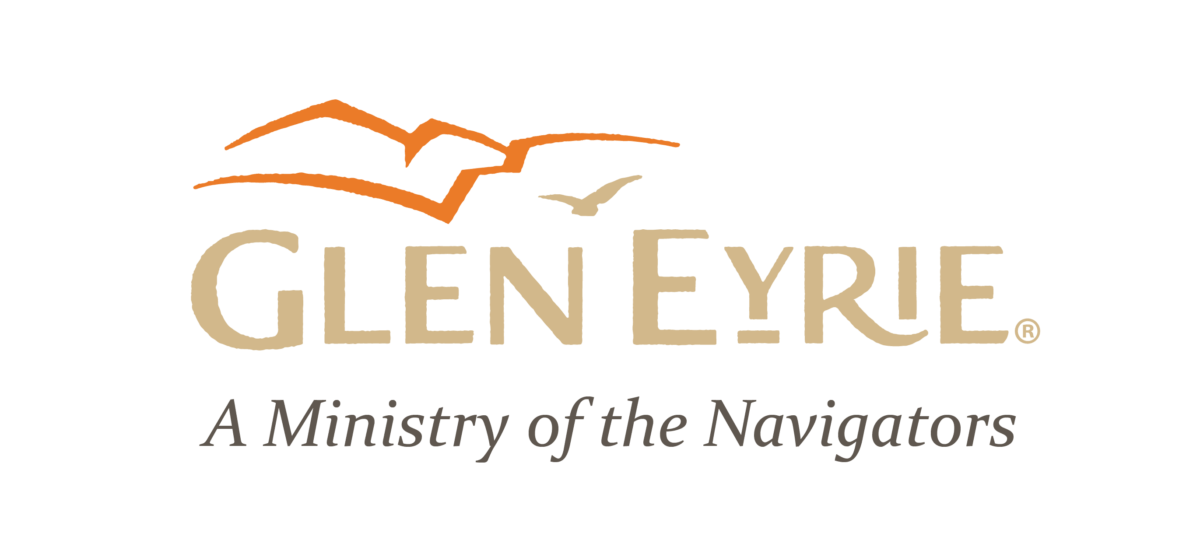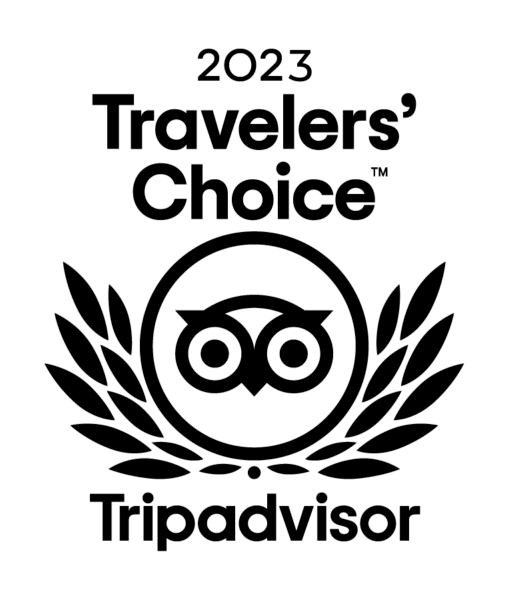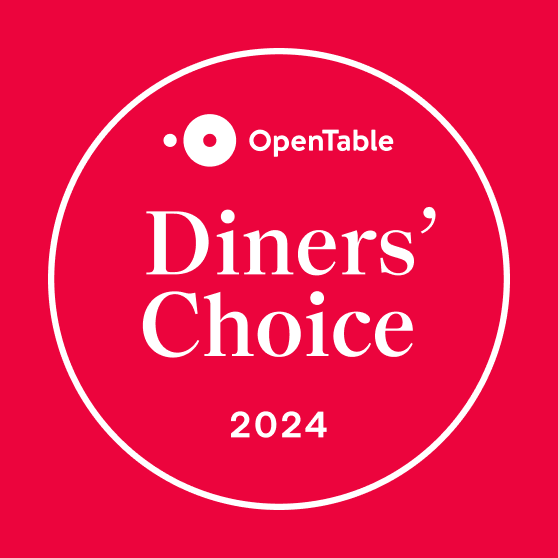Podcast: Play in new window | Download
Subscribe: RSS
Welcome to the Apprentice Approach Podcast Episode 8, where the ripples far exceed the splash… this is your host Jack McQueeney.
Many Christians struggle with making disciples; they feel busy, overwhelmed, and not qualified. We understand this struggle, which is why we’ve created a Bible-based framework so any believer can master the art of disciplemaking.
Today we will be speaking with Mark Heffentrager, Director of Camping Ministries for Eagle Lake Camps. Mark has over 21 years of experience with Eagle Lake Camps and has seen generations of campers and counselors impacted by their involvement in this ministry. This gives Mark a unique vantage point for understanding how different generations view discipleship and leadership within this ministry.
Today’s episode focuses on how millennials approach discipleship. We will look at how understanding the millennial generation, as well as Gen Z coming behind, is paramount in raising up generations of disciplemakers.
Let’s dive in…
Jack: Welcome, we’re here with Mark Heffentrager. Thank you, Mark, for spending this time with us; we appreciate it. We’re looking forward to our topic today: Millennials in the Workplace and Within Ministry. So, Mark, you’re pretty much an expert at this. You’ve been at this for over 21 years. Talk to us about some of the trends you’ve seen over that time.
Mark: Well, thanks Jack for allowing me to be here with you guys. You know, millennials are very unique and I think of them in a couple different ways, the first one is as staff members. One of the things that we’ve noticed with our millennials is: they have more options, which has led them to less commitment. So they have a ton of different options, and so, often times we only get them for a summer or maybe even less and so that’s one of the big things we’ve seen. But, the positive in that, is as a whole we have seen our staff be more eager for leadership and opportunity and development. They love to learn and so when you can get them locked in, it’s been a really good fit for us.
Also, millennials – as with in families – they’re much more involved and then they’re also, they’re much more involved. And what I mean by that is, there is a “helicopter generation” out there; the millennials are much more connected to their families for a longer period of time. One of the things we talk about is: “26 is the new 18.” A lot of the things that a lot of kids knew when they were 18, these guys are not really challenged to know until much later. So, often times they go to college and then they’ll come back and even be with their families for a longer period of time. But, they’re also much more involved. Meaning that when we get them involved with us, they’re very loyal to what we do, especially if they can see the cause of what you’re being a part of. So, if they really believe in the cause, they’re willing to kind of “stick it out” with you and be loyal.
And then the final one that I was thinking about, is, trends (as far as millennials) is as campers. We’re almost into the Generation Z and this is very similar for both of these, but they’re very very busy. They tend to come to camp older, so they’re doing a lot of things. They tend to be very focused on stuff, so you’ll get a kid who you’ll ask and you’ll say, “Hey, what are the things you’re doing this summer?” And they’re like, “Well, this is my fourth camp I’m doing; I did a football camp and a soccer camp….” So, they’re very, very busy. But they’re also, Jack, they’re willing to try more. When you get them to this age, they love to try new things, especially stuff that their peers are doing. And you know, that may not be unique to the millennials and the Z’s, but it’s something that we’ve noticed in our ministry.
Jack: Mark, we have talked about this before, but talk about the importance of leadership, the actual role of leadership, and what they’re [millennials] looking for.
Mark: Yeah, in this time, they have a great expectation to get leadership much earlier than previous generations. And so, if you’re not willing to… I think there was a real wrong… and I’m not here to debunk every negative thing about millennials… but I think that there was really, for awhile, a sense that people didn’t want to employ (“they’re too demanding” or “they’re entitled” – those kinds of things), and what we found was they just have an expectation that they want their voices to be heard at a much earlier time. Often times, they’re not expecting you to do exactly, but they would like the chance to be able to contribute much earlier. And, we’ve seen that has been awesome! One of the things we do, Jack, is we put them in leadership at a pretty young age: in their mid-twenties. We have a chance to really plug them into some really serious leadership; and they take it very seriously, and they really grow. Sometimes I think, you know, in my generation, you had to kind of earn that, you kind of had to prove it. Well, we’re finding that a lot of times they prove it by being given it. They may not even look like they can- sometimes we send folks out and we’re a little nervous. But, they really, we’ve found that within a couple days, they really take it seriously. So, it’s almost like they have to have it before they kind of step into it. So, it’s an interesting trend.
Jack: Yeah, that makes sense. Well, we’ve just put up our “No Know Grow” model in determining spiritual needs; it’s really the core ministry model of Eagle Lake. As you looked at that Mark, as we’ve developed this thing, can you talk us through that: the significance of each one of these words and the process as we train our staff to go through it.
Mark: As we’ve talked about, one of the things with this millennial generation is, they like to have good road maps. They like to know. And so, we laid this out a few years ago with the idea that this would be a skeleton that they could work off of. And so, at the top of the model is a person, and we say that person has to have “a heart for God and a heart for People.” And that’s really important to us. Because, if they just have a heart for God, they tend to be very focused on knowledge acquisition. They tend to be in their Bibles. That’s great! But, they also have to have a heart for seeing the next generation of discipleship- they need to see that. And most people have it in them, Jack, you gotta kind of awaken those things. It may be that they may be a “people person” and you have to help them to understand how to have that “heart for God.” But, once we find that balanced person, really – the core ministry model of Eagle Lake and really the core ministry model of the idea of The Apprentice Approach is: the one-to-one ministry. And it’s that “life-on-life ministry.” So, we then broke it down to just three steps here. And the first one is: to ask good, not just good questions, but good relationship-driven questions. So, we don’t just want to sit down and say, “Hey, how’s the weather? How ya…” But, we really wanted to try to get a little bit deeper in and allow them a chance to really talk with us.
Out of that, brings us to the second step – and it’s this model that you see, this chart that you see. You’re going to find out by asking those relationship-driven questions one of three things: the first one is “NO,” and we find out that they don’t know Jesus, it’s just very evident that they’re illiterate in that. They just don’t have that understanding of what it is to have a relationship with Christ, and so that’s the first one. And if you see on the chart there, one of the things that we want to do then for our counselors is we want to be able to share our testimony and how Christ has changed our lives and then also the Bridge illustration. There’s a lot of ways to share the Gospel; it’s just the one we teach, so that we know that our staff knows an effective way to share the Gospel. The second one that you may determine is “KNOW.” They know of Jesus. They may even believe in Jesus, but you can tell that no one has challenged them to go any deeper than maybe that commitment that they made to Christ- maybe it was at a retreat, maybe it was at a summer camp, something like that. But obviously, that soil is ready to really be tended to, and so, then we put some of these really clear spiritual disciplines in there: quiet times- teaching kids how to have a quiet time, and sometimes it’s not just kids, sometimes it’s adults- teaching them how to pray, and then also teaching them Scripture memory. You know, the Bible is so clear about hiding the Word of God in our hearts; and, that is so important in this generation and this time – with everything from our phones and technology and everything – we need to have the Word hidden in our hearts. And so, that’s a big discipline that really is lacking. People say, you know, “Oh, I got my Bible.” Or, “I got my Church, or whatever,” but, it’s really important that people can reference that. One of the common things we hear, Jack, and I know you hear this a lot is, “Well, I know the Bible says…” Well, that’s really (in a generation that technology is so easily acceptable), that’s not a good excuse. That doesn’t defend the way we want to defend the Gospel. And, the final one is “GROW.” (Jack: Part of that is: as long as they have a signal, right?) That’s exactly right. You know, I was actually out in the mountains yesterday and lost a signal, but not the Word that’s hidden in my heart. So, the final one is “GROW,” and this is when we see a kid that is growing in their relationship (or someone that we’re discipling that is growing in their relationship). And so, then we have three other things: The Hand, which is more of an illustration that works on the depth of knowledge; The Wheel, which is The Navigator Wheel, it’s the “Obedient Christian…” so what things make up that, you can begin to deal with fellowship, witnessing, prayer, and the Word. And then, Evangelism: we want to actually teach kids, “How do I share my own faith with someone?” Or, the guy I’m discipling, I want to teach him, “Hey, what are the opportunities you might have to share your faith?” And so, that’s where we’ve built this model. And then the final thing which often times is the most important thing we do is that we pray at the end. We want to just solidify that time and we want to set that time apart and really encourage one another. And, we’ve just found those relationship-driven questions, determining where the spiritual needs is, and then praying – this is a model that we use at Eagle Lake. But, it really transfers into any discipleship situation.
Jack: That’s good, Mark, that’s very helpful. Why is it important in your model, the ministry model with Eagle Lake, why is “one-on-one relationships” so important, especially as we think about trying to be with every camper in that way?
Mark: Well Jack, we have found that there’s simply nothing else that we do that is as effective as spending time with a person. Deep rooted in every one of us is a desire to be known, and that doesn’t matter whether you’re eight years old or eighty years old. And, we’ve just found it tried and true. You know, we’ve tried all the other things: we’ve tried fun stuff; we’ve tried great meals; we’ve tried all those things. But, the thing that we’ve found that’s tested over many, many years of not just Eagle Lake ministry, but The Navigator ministry, is that life-on-life, that one-to-one. And, when you stop for a minute and you sit with a person and you ask them about them and you listen, it’s amazing. Sometimes it’s awkward, Jack, to be honest with kids especially. You say, “We’re gonna go for a canoe ride,” or whatever, and you might say, “Well, tell me about your home,” and it takes a little time. Sometimes you gotta be okay with a little bit of silence. But given that opportunity, we’ve just found that kids love to talk – and people really love to talk – about their experiences. So, that one-to-one allows somebody that listens but then also can comment on some of those things. And, we’ve just found that that is so, so valuable. It’s really fun because it really is the core of what we do. But, we find that our counselors, it becomes so addicting that they want to get more than just one one-on-one in a week or whatever, and it’s really fun. And, I think we’ve also found that in discipleship is, when you can sit down with somebody, you get to see them grow. You get to see their growth in that one-to-one and it takes the rest of the noise away. You know, there’s great churches out there. There’s great Bible studies out there; but, this is when I get to deal in that safe environment. As that trust grows, I get to go deeper and deeper with a person.
Jack: That’s good. Let’s get back to talking about these millennials. You know it’s a “hot topic” right now as they’re really the driving force in workplace situations, and in ministry, and even in our culture. You’re into your fifth class of the Emerging Leader Program. Talk to us a little about that.
Mark: Well, the Emerging Leader Program was something that we developed a couple years ago. We saw that a lot of the graduates, obviously being in ministry that we do, we had a lot of college-aged kids and we were watching them progress. And a lot of the grads, in fact, most of the grads were not getting jobs in their fields. And so, we started to ask questions about that and we found that, for a lot of companies, they had a lack of experience. And, even their internships weren’t the kind of experience- those were really protected experiences. And so that’s great; everybody has an internship. And so we developed this program to bring them into what we do. And, we have a unique situation because we’re a ministry, but we’re also a business. So, we’re measured by a bottom line and we’ve got vendors and we have all sorts of stuff. So, we developed a program in which we could bring them in and we could give them real leadership and we could really teach them some things, basic business: how do you read a balance sheet; how do you interview somebody? And what we found, after the first class graduated, that once people clicked in, these graduates of this program had a lot of the things that people were looking for in their businesses. It was really valuable to the student but also to the workplace. You know, there’s a lot of negative stuff about millennials; but, we’ve experienced that in every generation: there’s the goods and the bads. And this generation, I think a lot of people just don’t understand. And so, a couple things that have really impacted our culture here, is these guys bring a ton of energy across our properties; they bring a ton of great energy. But, it’s interesting, Jack, our leaders have to be in a developmental mindset, because this group really wants to learn and they want to learn quick. So, the supervisors have to be willing to accept those questions, whereas my generation, we were a lot more patient. It was kind of that you were shooting for the corner office, but you never thought you were going to get there before your 50’s or later. These guys have the expectation they want to see that happen much quicker. And so, we’ve learned that they’re willing to jump in and try; but, you have to be in that developmental mindset where you can sit down. Because, that also brings me to one of the things that they hate the most, and that’s failure. Jack, this generation absolutely hates to look bad and fail. Competency is their greatest value. We spend a lot of time telling them, “Look, if you want to be successful, you gotta fail. You’ve got to take some risks.”
This was interesting as well, Jack, to be very honest with you, we asked the first two classes when they were done, “What were the two greatest things about your experience with us as an ELPer, as an Emerging Leader?” The first one, not really that surprising to all of us, they said that, “You gave us real leadership.” We sent a 25-year old out on the road with 20 staff members and $150,000 worth of equipment and full responsibility. They felt the burden. And a lot of them, you could see the panic as they were driving away; and yet, they came back and they really felt that they had grown and they were able to deal with those things.
The second one was incredibly surprising, and in fact they didn’t even want to say this to me. They didn’t want to tell me that this was the second greatest thing about the program; but, these ELPers have to fundraise all of their money to be with us for two years- this is a ministry and they fundraise this stuff. They said, “We hated it at the beginning but what God did through our faith in this, we wouldn’t have traded it for anything.” So, it was one of those situations where, it was like a lot of them were like, “No, we don’t want to fundraise,” but then, in the end, they were like, “No, to watch people want to support us, to learn that skill of how to sell ourselves and what we were doing and clearly communicate…”they said: hands-down, the leadership and the building of faith through fundraising were the two greatest things about the program. And they continue to say that year after year.
Jack: Yeah. You know, it is interesting how some of these young men and women have been protected and not ever had to be challenged in, like, fundraising before, and when they set out to do something and they see God working in a pretty significant way, that tends to be a highlight.
Mark: Absolutely!
Jack: And so, it really is a fun way to see, as these young men and women take a step of faith, how God really honors and blesses that. That’s really good! Well, what are some other challenges you think this generation really faces?
Mark: Well you know, when we look at mentorship and discipleship for this generation, I think that they come in a little different. They’re a little more confident, some people would call it “cocky;” but, what I have found, Jack, is they really value wisdom. They like people who have been there, done that; they like when you take time… you know, this model we were talking about with this one-to-one. But, they also need to trust that wisdom, and that takes a little bit of time. I think, again my generation, if you had the stripes on your coat, man you put your time in, you could tell me anything. This group’s a little more tentative and that’s because there’s so much information available to them that they want to know that this is something that they can trust. They want to know that they can trust you. So, it takes a little bit of time. But, they really do value it and we’ve seen that over time. You know, they face a huge challenge in technology- both good and bad. Technology has created for them some really good ways to connect with each other; but, it’s also created a false sense of community in some cases. The Facebook Generation – some of the Instagrams and stuff – they struggle at times in relationship because they look at these digital relationships as real and then they get into a real situation and it’s not as easy as just typing a few letters or things like that. But, they also, they stay closer connected with those people because of that technology; and so they have very, very tight pod and friend groups that are very supportive of each other. When they’re working – a little text here, a little text there, an encouragement here… you don’t need to grab the phone anymore. They can get with each other, they can even show each other their stuff. So, they’ve got some deep, deep relationships with one another through the technology. And then also, the strengths of this generation, they are hardworking… if they believe in what they’re doing. You have to shape things a little bit different. And, I think we have to hold them with an open hand. If it’s a wrong fit, I would be more prone to get rid of a millennial much quicker, if it’s a wrong fit, than someone that’s say a Boomer or, you know, a Gen Xer. Because, those two generations were more the: “You gotta put your time in, and just you know here.” This group of people, if they don’t believe in it, they’re not going to function real well in it for a long period of time. Now, that doesn’t mean, Jack, and you’re so good at this – is casting vision for them sometimes. I think in work, they have to see a larger vision; and so, I don’t care if it’s working at Subway or working for the government, they have to see the bigger vision and you have to be able to cast that a little bit larger. Because, they are hardworking- once they believe in what they’re doing – they get their noses down, they get in there, so you can continue. They’re also a very smart generation, but like I said before, Jack, they fear failure. They don’t take the risks that other generations have.
Jack: You know it’s interesting listening to you, Mark, about the passion, yet it has to be driven towards a purpose. How do you keep the “why” in front of them? What do you do to activate that passion in a way that keeps them going and motivated?
Mark: Well, Jack, one of the important things that we did a couple years ago, I think everybody’s got a mission statement, but not a lot of companies (many do, many don’t) have Core Values. And, we really say: they’re not just something that sticks up on the wall, they are our personality. And so, now as we get our ELPers, and if we’re interviewing somebody, we pull these out and we simply say, “This is who we are. You don’t have to worry that we’re going to be somebody different. Ten years from now, this is who we’re going to be.” And, by giving them that clear foundation to stand on, now they can look at those things and they can say, “Do I believe in this company and what they believe in?” Because, everything’s going to function out of that: our decisions are going to be functioned out of that, our hiring, our firing, how we choose to do our business is going to function out of that. And as soon as they can see that and align with it, again, you’ve got them. But, when those are fuzzy and they kind of think they know and then they get in and they find out that that’s not really… or your culture doesn’t reflect the things on the wall… they very quickly will figure out. And, Jack, we also have to realize, they’re young. They’re in their twenties maybe a little bit into their thirties. To expect that they’re going to know exactly what they want to do for the next forty years- that’s just not this generation. And, I think that disappoints- especially the Boomer Generation who got a job and it was like, “I’m starting my 40-60 years in this role.” That’s not how they look at it. They want to test a little bit. They’re kind of buffet people: “I’m gonna try a little bit of this and try a little bit of that.” And again, that’s ok. We’ve had some great millennials who have left for a season and then come back. They’ve come back wiser and they’ve come back more focused on: “You know what, I didn’t think this was what I wanted, but I got away from it and I came back and I know it’s what I want now.” And that’s been great.
Jack: Yeah, boy that’s good. Other insights? Anything else?
Mark: You know, I think that the last thing I’d love to say about the millennials is, is that there’s been a lot of concern… “Where’s our country going?” and all that. But, I thought about this and I’ve had to think about this because we employ so many millennials. But, every generation is criticized when they’re young. You think about the 60’s, you think about the 70’s, the 80’s, the 90’s, the 2000’s, everyone thought that, “Oh geesh, the world’s gonna end,” “How can it be the hippies?” or “those guys in the 80’s,” or worse yet, “the rap generation,” or the 90’s, whatever…” I’m just not seeing that; and, there’s a lot of hope as we continue to invest. You just have to learn to figure out how to reach them. And it is different, they’re a different generation. We shouldn’t expect them to be reached the same way we were. So, that’s a big, big insight. It’s meant that we’ve had to look at some of the ways we’ve done stuff and we’ve had to challenge ourselves with that. Say, you know, our working environments are much different- they’re a little different in the working environments and things like that. You know, there’s a lot of great research out there, there’s a lot of great stuff that has been done and I would challenge anyone who is employing one millennial to a hundred, to do your research and figure this out. And then, best yet, ask them (Jack: Yeah, that’s good!). Again, just asking them doesn’t mean you’re going to do everything that they say, but what we have found is them saying, “Hey could we have a little bit more flexibility in our work schedule?” Yeah, we can actually do that. “Hey, could we do this?” “Yeah, you know…” or “Hey, could we do that?” “No, probably not, but we can do this…” And they really respond to that, because they see that they are actually helping to make change.
Jack: Yeah. Boy! That’s good. That is really good. Well, we could go on and on, and this may bring up questions for another podcast; but, I hope you’ve enjoyed being with Mark here, and I am excited to see all the things that God is doing through Eagle Lake and through the staff there. It’s been a pretty spectacular time these last couple months seeing God do so many things. So, Mark, thanks again for taking the time, being with us, and we’ll look forward to our next venture with you soon to come.
Mark: Thank you Jack.
Jack: We’ve learned that what makes different generations unique can offer an incredible opportunity (rather than barrier) to minister to people in new ways through discipleship.
We hope you’ve enjoyed this episode and learning community and feel encouraged and better equipped! For more on Eagle Lake Camps and the work and leadership Mark is a part of, visit Eaglelakecamps.com. And, for more on The Apprentice Approach, including resources, our blog, and to sign up for weekly emails, visit our website TheApprenticeApproach.org , and if you haven’t subscribed to The Apprentice Approach Podcast in iTunes, do it today!
Until next time, this is your host, Jack McQueeney, believing God for generations of men and women like you!







